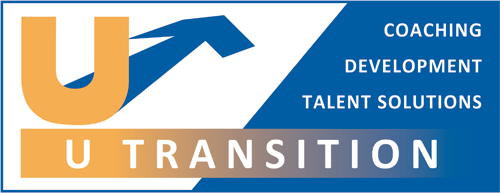
 Having strong views and opinions as a business owner is often seen as a valued and positive trait. It demonstrates conviction and confidence in your values and opinions and aids decision making. It is about being Certain.
Having strong views and opinions as a business owner is often seen as a valued and positive trait. It demonstrates conviction and confidence in your values and opinions and aids decision making. It is about being Certain.
Equally, being able to seek the views and opinions of others, to consult and include is also seen a positive trait. It’s about being Open / Reflective.
So which is or should be more important as you grow your business?
Can you do both?
Those of you that have been connected with me for a while will know I talk about Paradoxical Leadership. One of the paradoxical leadership pairs that will help you to form better opinions and therefore make better decisions, is by developing the leadership paradox of Insightful Curiosity. Balancing the paradoxical traits of certain and open / reflective.
A tale of two opinions:
Part 1: Once upon a time, there was a CEO of a medium sized company who had a very strong opinion about how to run the business. He believed that the company should focus solely on product development and marketing, and that all other departments, such as finance and human resources, were not important.
He had started the business himself many years ago and it had grown to be very successful, however, he firmly believed that the success was down to him and his knowledge, expertise and hands on approach.
The CEO was so convinced of his opinion that he refused to listen to any other viewpoints or consider the impact his decisions would have on other departments and team members. He was often dismissive of suggestions and sometimes quite aggressive in his responses. The manager’s strong opinion created a culture of fear, where team members were afraid to speak up or suggest improvements for fear of reprisal.
The CEO would often micromanage his team, dictating every detail of the day job and discouraging any deviation from the established process. This led to frustration and burnout among the team members, who felt that their ideas and expertise were not valued, along with a lack of innovation and a failure to adapt to changing market conditions.
As a result, the finance department was severely understaffed and struggled to manage the company’s finances, which were in a mess. Similarly, the human resources department was neglected, leading to problems with recruitment, high employee turnover and low morale.
Despite these problems, the CEO continued to push his agenda and refused to acknowledge the importance of other departments. This led to widespread frustration and disengagement among employees, as well as decreased productivity and profitability.
Over time, the CEO’s strong opinion became a liability for the company, as they were unable to adapt to changing market conditions or respond to customer needs. Eventually, the company began to lose market share and revenue, and the CEO was forced to step down.
Moral of the story – a leader having too strong of an opinion (high Certain ) can cause big problems such as:
- Resistance to change: with a very strong opinion, they may be less open to new ideas and perspectives. This can lead to resistance to change, which can impede progress and innovation.
- Lack of collaboration: they may be less willing to collaborate with others and consider alternative viewpoints. This can lead to a lack of diversity of thought and a failure to leverage the collective intelligence and experience of the team.
- Decreased morale: they may come across as inflexible or rigid, which can decrease morale among team members. This can lead to frustration, disengagement and reduced productivity.
- Groupthink: they may influence others to conform to their views, leading to groupthink. This can limit creativity and innovation, and lead to poor decision-making.
- Decreased credibility: they may be perceived as biased or closed-minded. This can decrease their credibility with team members, stakeholders, and customers.
- Loss of revenue: all of the above overtime will impact on a business’s performance and revenue
Part 2: Once upon a different time, there was a CEO of a small company who was known for avoiding controversial topics and issues. Whenever there was a problem, possible confrontation, an outcry or backlash, the CEO would remain silent or issue vague, non-committal statements.
This approach initially seemed like a great way to avoid controversy, keep the peace and maintain a neutral position, but over time it led to a lack of trust and credibility among customers and employees.
The CEO’s lack of opinion also led to many missed opportunities. The company was slow to adapt to changing customer preferences and market trends, as the CEO was reluctant to take risks or make bold decisions. The company began to lose ground to more innovative and customer-focused competitors.
In the end, the company was forced to undergo a significant restructuring, with the CEO replaced by a more decisive and proactive leader.
Moral of the story – a leader not having an opinion at all (too high open / reflective) can cause big problems such as:
- Lack of direction: Without an opinion, a leader may struggle to provide direction and guidance to their team. This can lead to confusion, indecision, and uncertainty among team members as well as a general lack of progress or the team deciding for themselves what the priorities are.
- Decreased credibility: Leaders who do not have an opinion on important issues may be viewed as indecisive or lacking in knowledge. This can decrease their credibility with team members, stakeholders, and customers.
- Inability to inspire: they may struggle to inspire and motivate their team and without a strong sense of direction, it can be difficult to rally people around a common goal team members may feel demotivated and disengaged.
- Missed opportunities: a leader may miss opportunities to innovate or make strategic decisions that could benefit the business. This can lead to stagnation and missed opportunities for growth.
- Lack of accountability: they may also be less likely to take responsibility for the outcomes of decisions. This can erode trust with team members and stakeholders.
- Lack of conviction: If a leader’s opinions are not strong enough, they may not have the conviction to make difficult decisions. This again can lead to indecisiveness and a lack of progress.
- Difficulty in communication: If a leader’s opinions are not clear or strong enough, they may struggle to communicate effectively with their team leading to misunderstandings and miscommunication.
So it’s a Paradox: both traits need to be developed and used in a balanced and synergistic way.
It is important for leaders to develop informed opinions that are strong enough to lead the way, provide direction and guide decision-making, but at the same time be open to seeking alternative viewpoints, consult and ask for feedback. Leaders need to be cautious and avoid rash decisions, and also willing to take risks and make decisive choices to guide their company toward success.
And by being able to do both traits really well actually gives us more behavioural choice and flexibility. To be able to consciously choose the most appropriate behaviour for the situation or individual rather than be at the mercy of our habits and preferences. The good news is, it is possible to develop both traits.
Please watch this short video by my fellow Harrison colleague David Klaasen which explains the paradox of Insightful Curiosity very nicely in more detail.
Contact me if you would like to know more about Paradoxical Leadership or would like to take the Harrison Assessment and see how you compare against the 12 leadership paradoxes.
Book a call here – Book a Strategy call now
Points to ponder:
- Which story resonated with you most?
- Which trait do you naturally have a preference for ? – Certain or Open / Reflective? ……and what impact does that have on your team and your business?
- Would you like a strategy call to talk it through?
Book a call here – Book a Leadership Strategy call now
